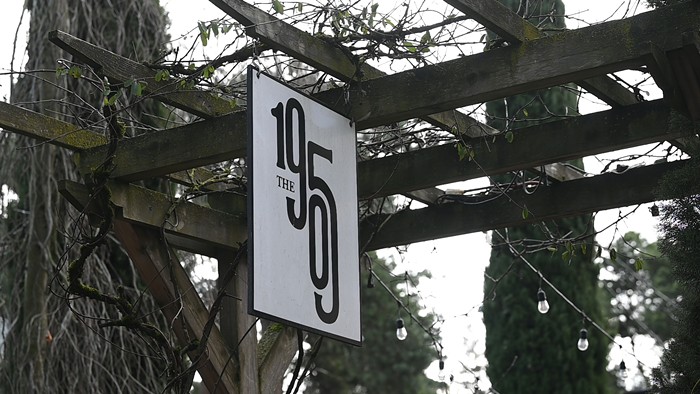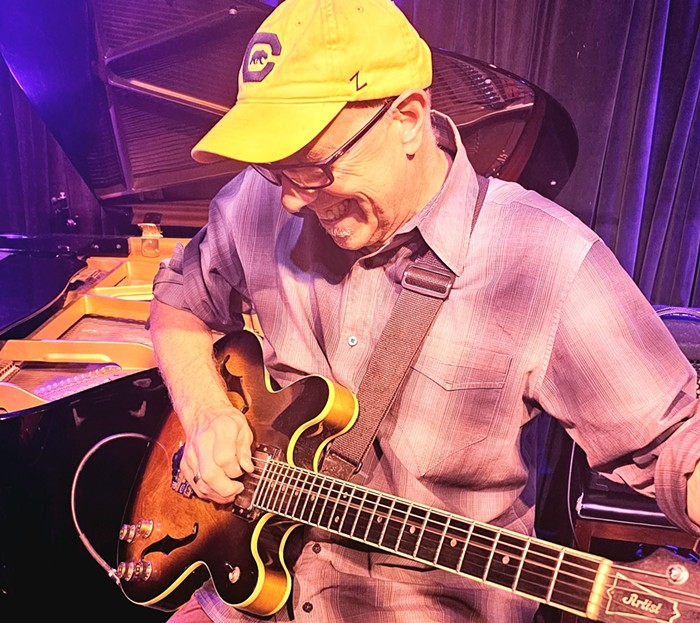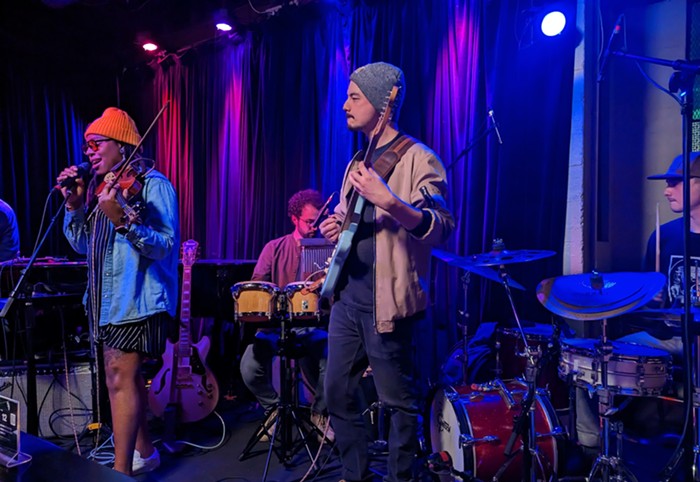THE PURPORTED mystical properties boiling in the soil of the Northwest have for decades been a beacon for wanderlusting artists. The pilgrimages continue daily, like a Gold Rush wagon train—artistes and ambitious dilettantes flocking, mining for flecks from the inspirational scrapheap. In the case of Santa Barbara's Gardens and Villa, their affinity for the ancient forests of Portland, and the motivating incantations found therein, have spurred an honest trek into a more comfortable environment to foster their curious tribal-pop oeuvre.
The quintet is living and writing music in Portland for the month of January, staying with their friends Hosannas, whose graciousness (and basement) has afforded the band a blank creative slate for working on the follow-up EP to their self-titled debut, released by Secretly Canadian in 2011. The North Portland home holds the distinction of feeling like a deep-forest cabin, save for the steady hum of I-5 commuters just beyond the tranquility.
"I feel like we're in some kind of Lost Boys hideout," says vocalist/guitarist Chris Lynch. "I think there's a mystical side to it. It seems like we're on the edge of something because the freeway is right there."
Having that looming edge seems a fitting scene for Gardens and Villa, a band whose consciousness of creative transformations and awareness of the relevance of sonic boundaries permeates their debut record. The album bleeds falsetto vocals over groove-pocked pop, notable for including a wide range of instrumentation not ordinarily found on contemporary underground rock recordings. Most glommed onto by the media is Lynch's use of Indian bansuri, a flute-like instrument featured prominently in the group's single "Orange Blossom."
The basement is an explosion of Jesus and Virgin Mary imagery (possibly leftover from Hosannas' days as Church), spent incense sticks, and a whole fleet of found instruments and noisemaking gadgetry. The plan is to put in eight hours—at least—a day until relevant inspiration strikes. A tall order, certainly, but it's a goal the group is hyper focused on.
"It's another universe compared to last year being on tour and putting the creativity into hibernation," says keyboardist Adam Rasmussen. "Now I feel we're hermitting. We're slightly fearful to go to a restaurant and order dinner."
The dedication is evident in the live setting, too. Gardens and Villa pride themselves on performing every sound found on their record, live with no tracking, recalling the Talking Heads, an important influence on the band. Equally influential is the imprint of go-to producer Richard Swift, who recorded the band's debut album at his home studio in Cottage Grove, Oregon, in the summer of 2010. The band pitched tents in Swift's backyard, living there for two weeks while they recorded. This would prove a pivotal time in the band's short career. Swift's old-school approach to recording was foreign to Gardens and Villa, and necessitated a shift in their creative process.
"It turned out to be a completely mind-altering, positive experience," explains bassist Shane McKillop.
The band agrees that Swift's mentorship marked a sea change for the group's approach to crafting their songs. The articulation of the more spiritual aspects of these epiphanies, however, is harder to pry out of them.
"I feel like the more ritualistic, spiritual practices that we have learned should be left behind the closed doors of the tabernacle," says Lynch with a wry smile.



















